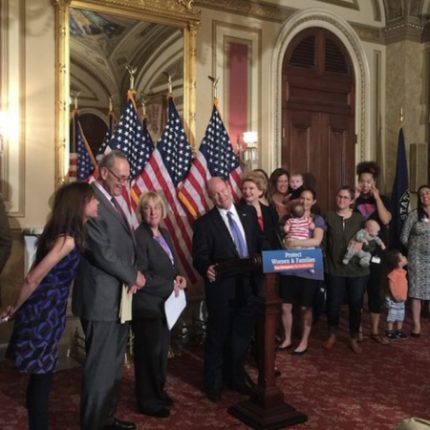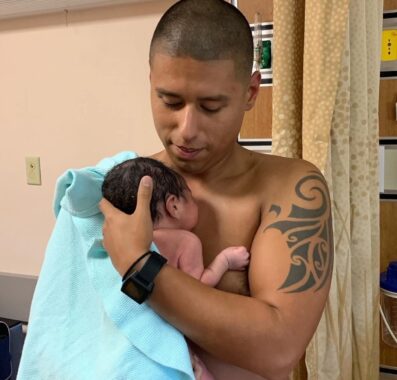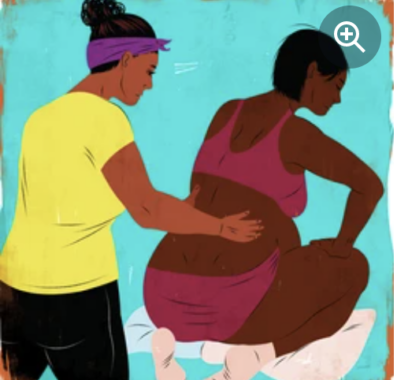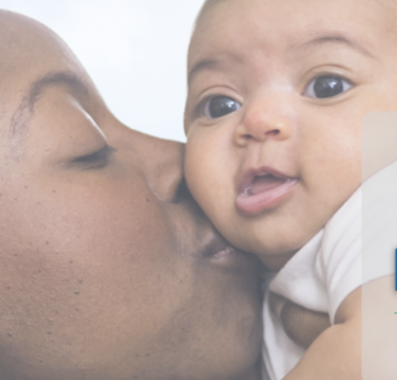Legislation Update

WTEP advocates for increased U.S. and global resources, advances sound non-partisan public policy proposals to help the most at-risk moms, and works to advance evidence-based health information to support, educate, and empower moms in need everywhere.

Legislation Work
JULY 24, 2024 – U.S. Senators Chris Coons (D-Del.) and Susan Collins (R-Maine) introduced a bipartisan resolution supporting today, July 24, as Bump Day. The day is part of an annual, global campaign that celebrates healthy pregnancies and raises awareness of maternal health care challenges.
“All mothers deserve the care and support that’s needed for a safe pregnancy, birth, and healthy future for both mother and child,” said Senator Coons. “Bump Day celebrates and honors expectant mothers and their pregnancy journey, while advocating for the health care and support they need. I’m proud to introduce this resolution with Senator Collins and encourage more work towards making wide ranging maternal health care accessible for all.”
“Bump Day is part of a campaign that raises awareness of the need for improved maternal health care in the United States and around the world,” said Senator Collins. “This bipartisan resolution recognizes the critical importance of ending preventable maternal deaths by better ensuring that every mother has access to the care they need throughout their pregnancy.”
“Every mom – no matter where she lives, the color of her skin, or her ability to pay – deserves the care she needs to deliver a safe pregnancy and birth and a healthy future to herself and the baby she loves,” said Heidi Murkoff, author, What to Expect When You’re Expecting and Founder, the What to Expect Project. “That’s not a partisan issue – that’s a human issue. And that’s why the What to Expect Project and I are so proud to work together with Republicans and Democrats to support the #BumpDay resolution and its vital mission: to raise awareness and spur action to finally address the urgent, growing need for better, more equitable and accessible, more respectful and responsive, maternal healthcare care for every mom, everywhere: without disparity, without exception, and without the gaps that currently span hundreds of miles through maternity care deserts, both rural and urban, leaving far too many moms and babies at risk. We’re grateful to Senators Coons and Collins for their shared commitment to the health and well-being of moms and babies.”
Each year in the United States, more than 800 women still die from pregnancy-related and childbirth-related complications; 80% of all maternal deaths are preventable. Bump Day promotes action to end the crisis of maternal mortality and morbidity in the United States.
(6/12/2024) Washington, D.C. – Today, U.S. Senators Reverend Raphael Warnock (D-GA) and Marco Rubio (R-FL) introduced bipartisan legislation to improve maternal health outcomes by promoting fatherhood engagement. The Dads Matter Act of 2024 would direct the U.S. Department of Health and Human Services (HHS) to raise awareness about father inclusion and engagement through a public awareness campaign and to provide state-level guidance aimed at strengthening the role of fathers in supporting healthy mothers and babies. This legislation builds off a bipartisan Father’s Day resolution Senator Warnock led with Senator Eric Schmitt (R-MO) bringing the full Senate together to uplift and affirm fathers and their role in maternal health.
“Georgia’s maternal mortality rate is a crisis that we must address with every tool at our disposal. That includes redoubling our efforts to uplift the role of fathers in keeping their family healthy during pregnancy and early childhood,” said Senator Reverend Warnock.“With Father’s Day quickly approaching, now is the time to spread awareness about the critical role of fathers in improving maternal health outcomes and creating thriving families and communities.”
Read full press release here.
“It takes a village to raise a child. But first, that village must safely deliver a healthy baby to a healthy mom-and that takes all of us. We must do better. Too many moms in the U.S., especially Black moms, don’t get the maternal healthcare they need and deserve, too many moms die or nearly do, and far too many suffer devastating long-term health consequences. Every maternal death is unthinkable, but any death that could have been prevented with the proper care should be considered unacceptable. That’s why the What to Expect Project and I urge Congress to pass and President Biden to sign into law the historic maternal health equity investments in the Build Back Better Act. Expanding and extending postpartum Medicaid coverage to a full year will save lives, ensuring that more moms will get covered and stay covered. Strengthening the perinatal workforce, including doulas and mental healthcare providers, will provide better, more respectful and responsive maternal healthcare, ensuring that moms will be seen, heard, cared for and about. The challenges are greater than ever – but so is the urgency of our collective responsibility to deliver that care, without exceptions, without disparities, and definitely without the arbitrary use-by dates that currently allow too many moms to fall through the cracks in maternal healthcare. We’re grateful for the leadership and tireless efforts and commitment from Representatives Underwood and Adams and the Black Maternal Health Caucus to promote equitable and empowering care for all moms.” – Heidi Murkoff, Founder, What to Expect Project; Author, What to Expect When You’re Expecting
Read more quotes in support for the Historic Momnibus & Postpartum Medicaid Investments in the Build Back Better Act here.
Representative Chrissy Houlahan (D-PA) introduced a bipartisan resolution recognizing July 21st as Bump Day. She is joined in this effort by Representatives Michael McCaul (R-TX), Lucille Roybal-Allard (D-CA) and Jaime Herrera Beutler (R-WA). Bump Day is a global advocacy day for maternal health, and Rep. Houlahan’s resolution not only commemorates this day but also reaffirms the United States’ leadership to end preventable maternal deaths in the United States and across the globe.
“Every mom — no matter where she lives, no matter the color of her skin, or her ability to pay — deserves the maternal healthcare she needs to deliver a healthy pregnancy, safe birth and healthy future to herself and her baby,” said Heidi Murkoff, author of What to Expect When You’re Expecting and founder of the What to Expect Project. “Yet around the world, more than 800 women die of pregnancy-related complications every day. In the U.S., where we have the highest maternal mortality rate in the developed world, Black and American Indian/Alaska Native moms face a 3 times greater risk of dying from a pregnancy-related complication, and moms living in maternity care deserts, both rural and urban, also face disproportionately higher risk. More than 2/3 of all maternal deaths are preventable, as are most long-term health consequences for both mother and baby. That’s heartbreaking, but it’s also unacceptable. And it’s time to stop accepting it. The health of our moms and babies isn’t a partisan issue — it’s a human issue. That’s why the What to Expect Project and I are so excited and proud to work together with Republicans and Democrats on both chambers in support of the #BumpDay Congressional Resolution — dedicated to raising awareness about and inspiring action to address the urgent need for better, more equitable, more respectful and responsive care for every mom, everywhere. No exceptions, no disparities. We’re grateful Representative Chrissy Houlahan for leading the introduction of the #BumpDay congressional resolution and to Representatives Michael McCaul, Jaime Herrera Beutler and Lucille Roybal-Allard for their resolute support of maternal health on #BumpDay, July 21st and every day. Together, we can make sure that every mom gets the respectful, responsive, equitable quality care she and her baby need and deserve.”
Read more about the Bipartisan Resolution Recognizing Bump Day here.
“There is no better investment in our collective future than maternal health — delivering the respectful, responsive, comprehensive continuum of care every mom needs to deliver a healthy beginning and a healthier future for herself and the baby she loves. I’ve always said that doulas are the missing link in that care —a cost-effective, easily scalable, family-focused, community-centered source of the physical and emotional support, information, and empowerment that every mom, but especially our most vulnerable moms, deserve. No mom should stand alone, and no mom should deliver unsupported. With a doula by her side, no mom has to. We are grateful to Senators Durbin and Collins and to Representative Moore for their leadership, tireless efforts and commitment as champions of maternal health and champions of doulas.” – Heidi Murkoff, founder of the What to Expect Project and author of What to Expect When You’re Expecting
Read more about the Bipartisan Resolution Recognizing Important Work Of Doulas here.
Just in Time for Mother’s Day, Houlahan Introduces Military Moms Matter Act Historic bill would transform the armed forces into a more supportive organization for new mothers, increasing U.S. military readiness
Pregnancy and becoming a parent is challenging enough under any circumstances, but for military moms – spouses or active duty service members – serving far from family, friends and their network of support, it’s exponentially harder,” said Heidi Murkoff, founder of the What to Expect Project and author of What to Expect When You’re Expecting. “That’s why the What to Expect Project and I are proud to endorse the Military Moms Matter Act, a critical piece of legislation that removes barriers to essential maternal health care, mental health care and supportive postpartum care that every mom deserves – especially when she’s doing the heavy lifting of serving our country along with the even heavier lift of pregnancy, birthing and parenting. Military moms are strong, no doubt, but that doesn’t mean that they should have to “soldier up” without help, whether it’s help for postpartum anxiety or depression or PTSD, help recovering from the physical toll taken by pregnancy and childbirth or help getting the time they and their partners need to bond as a family. This is ‘support for our troops’ that puts action behind the bumper sticker to offer our amazing military moms and families the support they need, and that we owe them – making their lives safer, happier and less stressful. We’re so grateful to Representative Houlahan for introducing the Military Moms Matter Act and for her passionate leadership and tireless efforts and commitment behalf of our military moms and families.”
Read more about the Military Moms Matter Act here.
“Being a mom is always hard, but this has been an especially difficult year for moms everywhere, particularly for military moms. The challenges for military moms — the pressure they feel to be strong no matter what, the anxiety and depression they’re more likely to face, their need for more support before, during and after childbirth — are nothing new. But the unique struggles of moms who serve their country – and to be clear, all military moms serve, whether they’re active duty or spouses – have intensified exponentially during the pandemic, which has left them feeling more isolated than ever. I know this, because I’ve had the honor of meeting, speaking to, and hugging thousands of military moms around the world – they’ve become not only part of my life and my family, but my greatest source of inspiration.
That’s why I am so encouraged that this year’s National Defense Authorization Act has been passed into law. It’s welcome progress in supporting the families who sacrifice so much to protect our nation, offering doula and lactation support for military moms under TRICARE and studying prenatal and postpartum mental health conditions and access to care to better understand and serve the needs of members of our Armed Forces and their families. It’s time to support our military families in meaningful action, instead of empty platitudes. This is an important first step, and I’m grateful that Congress has taken it, thanks to the leadership of Senator Blumenthal, working collaboratively with Senator Gillibrand and Senator Kaine. Today is a great day, even in a tough year, for military moms.”
Heidi Murkoff, author of “What to Expect When You’re Expecting,” creator of WhattoExpect.com and founder of the What to Expect Project
Doulas make a difference for every delivering mom — but especially for those who face one of life’s most challenging experiences on their own, separated by thousands of miles from family and friends, and often, from their deployed partners, too. That’s why Heidi Murkoff, What to Expect creator, founder of the What to Expect Project, and long-time advocate for military families, has worked closely with Senator Richard Blumenthal and Senator Kirsten Gillibrand to ensure that all pregnant active duty servicewomen and military spouses have access to the vital support offered by a birth doula. The TRICARE Coverage for Doula Support Act introduced by Senators Blumenthal and Gillibrand, will not only help military moms feel more supported, among many other benefits doulas have been shown to lower the risk of complications in a hospital birth. Investments in doula support will reduce costs and improve maternal and infant health.
The fiscal 2021 National Defense Authorization bill includes a five-year pilot program to cover the services of a professional trained to provide physical and emotional support for female troops and military family members during childbirth. The program would evaluate the cost, quality of care and impact on new moms and babies of hiring a doula or lactation consultant or counselor.
Read more about the Pilot Program here.
Advocacy Updates
“This week, we celebrate the work and contributions of doulas, and the critical role they play in delivering the respectful, responsive, comprehensive continuum of care every mom needs to deliver a healthy beginning and a healthier future for herself and the baby she loves. The What to Expect Project believes that doulas are the missing link in that care—a cost-effective, easily scalable, family-focused, community-centered source of the physical and emotional support, information, and empowerment that all moms— especially moms of color and underserved moms—need and deserve. With the COVID-19 pandemic casting its dark shadow on maternal health, widening the already huge gaps in care, the need to expand access to doulas has never been more urgent. No mom should stand alone, and no mom should deliver unsupported. With a doula by her side, no mom has to.” – Heidi Murkoff, Founder of What To Expect Project and Creator of What To Expect
WASHINGTON—(5.12.2021), the U.S. Senate passed a bipartisan resolution introduced by U.S. Senate Majority Whip Dick Durbin (D-IL) and U.S. Senator Susan Collins (R-ME), working in close collaboration with Heidi Murkoff and the What To Expect Project recognizing the work and contributions of doulas towards improving pregnancy, birth, and postpartum outcomes; lowering pregnancy and childbirth related costs; and reducing the impact of racial bias on pregnant and postpartum women of color. Further, the resolution designates the week of May 9th as National Doula Week, in honor of the important work that doulas provide to help pregnant and postpartum women nationwide.
The Senate resolution:
- Reaffirms the important role of doulas in maternal care and addressing maternal mortality and morbidity in the United States;
- Acknowledges that access to doula support services, especially in underserved communities, may contribute to improved birth outcomes and lower health care costs;
- Urges greater recognition and support for the important role that doulas play in—
- supporting improved pregnancy, birth, and postpartum outcomes, including maternal mental health;
- reducing health care costs and working towards the elimination of health disparities; and
- overcoming barriers for women of color and women in rural areas;
- Designates the week of May 9, 2021, as “Doula Week” to raise awareness for, and advocate for the benefits of, doulas and the support services doulas provide.
Read more here.
Over the last two decades, disparities in healthcare and a consistent record of putting maternal health last, has made the U. S. the least safe place to have a baby in the developed world. While globally, maternal mortality has fallen, it has risen in the U.S., where every year, approximately 700 to 900 women die of complications of pregnancy and childbirth. Nearly two-thirds of these deaths are preventable. Every maternal death is unthinkable, but every death that could have been prevented with the proper care should be considered unacceptable.
Many factors contribute to this, but one looms larger: race. Black moms are at the greatest risk of all – nearly three times more likely to die of complications from pregnancy and childbirth than White moms.
Black Maternal Health Week represents a vital opportunity to bring acutely needed awareness to what can only be described as a crisis of maternal mortality and morbidity. Maternal health, including preconception health, is the foundation of all public health–making solving this crisis not only a moral imperative, but also a public health imperative. Thank you, Congresswoman Adams and Senator Booker, for your leadership, tireless efforts and commitment as champions of maternal health. Read more on WTEP’s support to help advance this important congressional resolution, and to end all preventable maternal deaths:
“Being a mom is always hard, but this has been an especially difficult year for moms everywhere, particularly for military moms. The challenges for military moms — the pressure they feel to be strong no matter what, the anxiety and depression they’re more likely to face, their need for more support before, during and after childbirth — are nothing new. But the unique struggles of moms who serve their country – and to be clear, all military moms serve, whether they’re active duty or spouses – have intensified exponentially during the pandemic, which has left them feeling more isolated than ever. I know this, because I’ve had the honor of meeting, speaking to, and hugging thousands of military moms around the world – they’ve become not only part of my life and my family, but my greatest source of inspiration.
That’s why I am so encouraged that this year’s National Defense Authorization Act has been passed into law. It’s welcome progress in supporting the families who sacrifice so much to protect our nation, offering doula and lactation support for military moms under TRICARE and studying prenatal and postpartum mental health conditions and access to care to better understand and serve the needs of members of our Armed Forces and their families. It’s time to support our military families in meaningful action, instead of empty platitudes. This is an important first step, and I’m grateful that Congress has taken it, thanks to the leadership of Senator Blumenthal, working collaboratively with Senator Gillibrand and Senator Kaine. Today is a great day, even in a tough year, for military moms.”
Heidi Murkoff, author of “What to Expect When You’re Expecting,” creator of WhattoExpect.com and founder of the What to Expect Project
Unfortunately, compassion for our moms is not always a given. But the short-term investment in maternal health care, especially for Black moms who are already at greater risk for complications, can dramatically lower health care costs when it prevents maternal morbidity, long stays in the hospital for moms and long stays in the NICU for babies, as well as long-term care for conditions that become chronic.
We know the challenges are greater than ever – but so is the urgency of our mission to ensure quality care for all moms that comes without exception and without disparities. Every mom should expect and deserves the care and support she needs to deliver a healthy start in life and a healthy future for herself and the baby she loves.
As the new administration moves towards the development of a critically-needed maternal health strategy, WTEP recommends the following policies to be prioritized within the first 100 days – all in equal importance.
The What To Expect Project was invited to participate at the Second Annual Black Maternal Health Caucus Stakeholder Summit held online on July 27, 2020. The virtual event convened more than 100 organizations working to address the Black maternal health crisis. The Summit presented an opportunity to discuss advocacy efforts on behalf of the Black Maternal Health Momnibus Act, legislation to address the Black maternal health crisis. The bill was introduced in March 2020 by founders and co-chairs of the Black Maternal Health Caucus U.S. Representatives Lauren Underwood (IL-14) and Alma Adams (NC-12), and by U.S. Senator Kamala Harris (D-CA).
Heidi Murkoff, founder of the What To Expect Project and author of What To Expect When You’re Expecting, delivered remarks for the virtual summit that echoed the all-too-familiar experiences of the WTE community of over 20 million expectant and new moms.
WTEP president and executive director, Annie Toro, JD, MPH represented the organization at the Summit and spoke about WTEP’s recommendations to end preventable maternal deaths.
During the week of September 15, Washington, DC Mayor Muriel Bowser hosted the third annual National Maternal & Infant Health Summit – a keystone event planned and executed by Thrive by Five DC in collaboration with the Mayor’s Office of Community Affairs – to build on the interest concerning these critical issues and the District’s new approach to protect the health of women, babies, and families. With the COVID-19 pandemic changing business as usual for everyone, the Summit focused significantly on the impact of the pandemic on pregnant women, moms, and babies.
The virtual Summit was a unique opportunity for various partners representing a range of stakeholders, including nonprofit organizations, health officials, and elected officials to use lessons learned from the COVID-19 response to advocate for improved delivery of perinatal care and continued investment in support for moms, babies, and their families.
The What to Expect Project joined this year’s summit as a partner. In advance of the Summit, WTEP’s Founder, Heidi Murkoff, prepared remarks for Summit participants and joined Thrive by Five DC’s Executive Director, Dr. Faith Gibson Hubbard, for an interview about WTEP’s efforts to advance maternal health, including ongoing activities and strategies to help moms during the pandemic.
There is no better investment in our collective future than maternal health.
Heidi Murkoff, Founder




